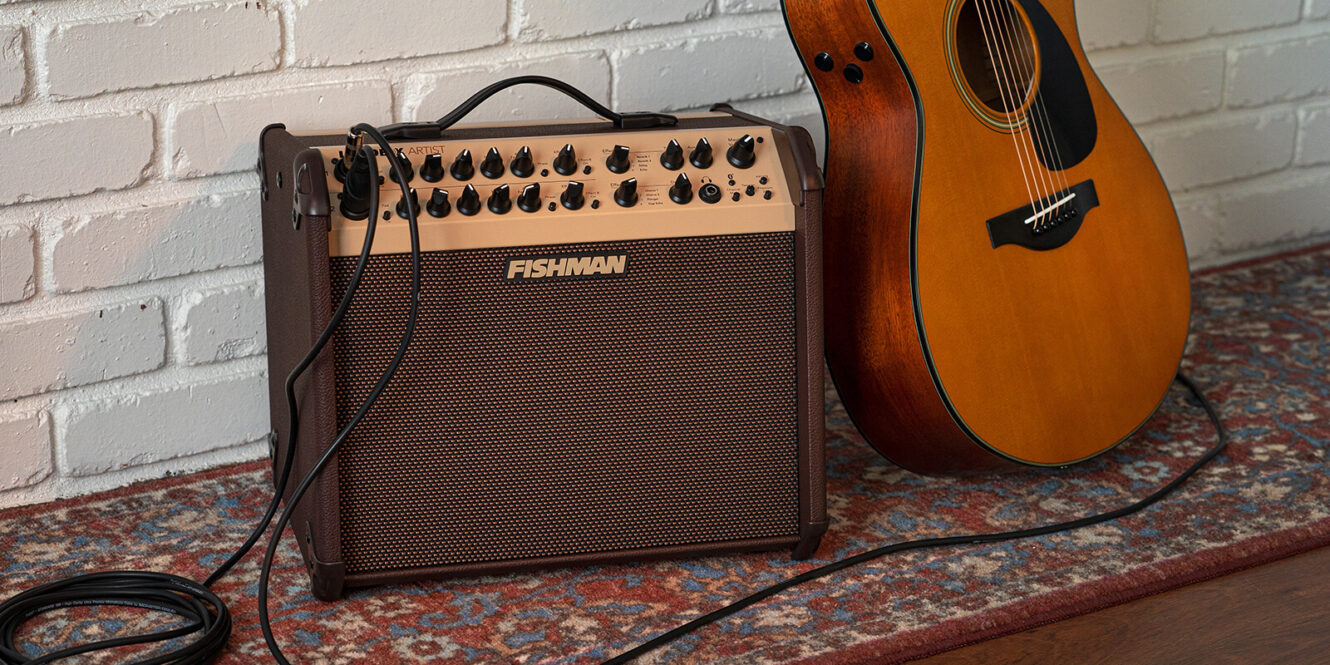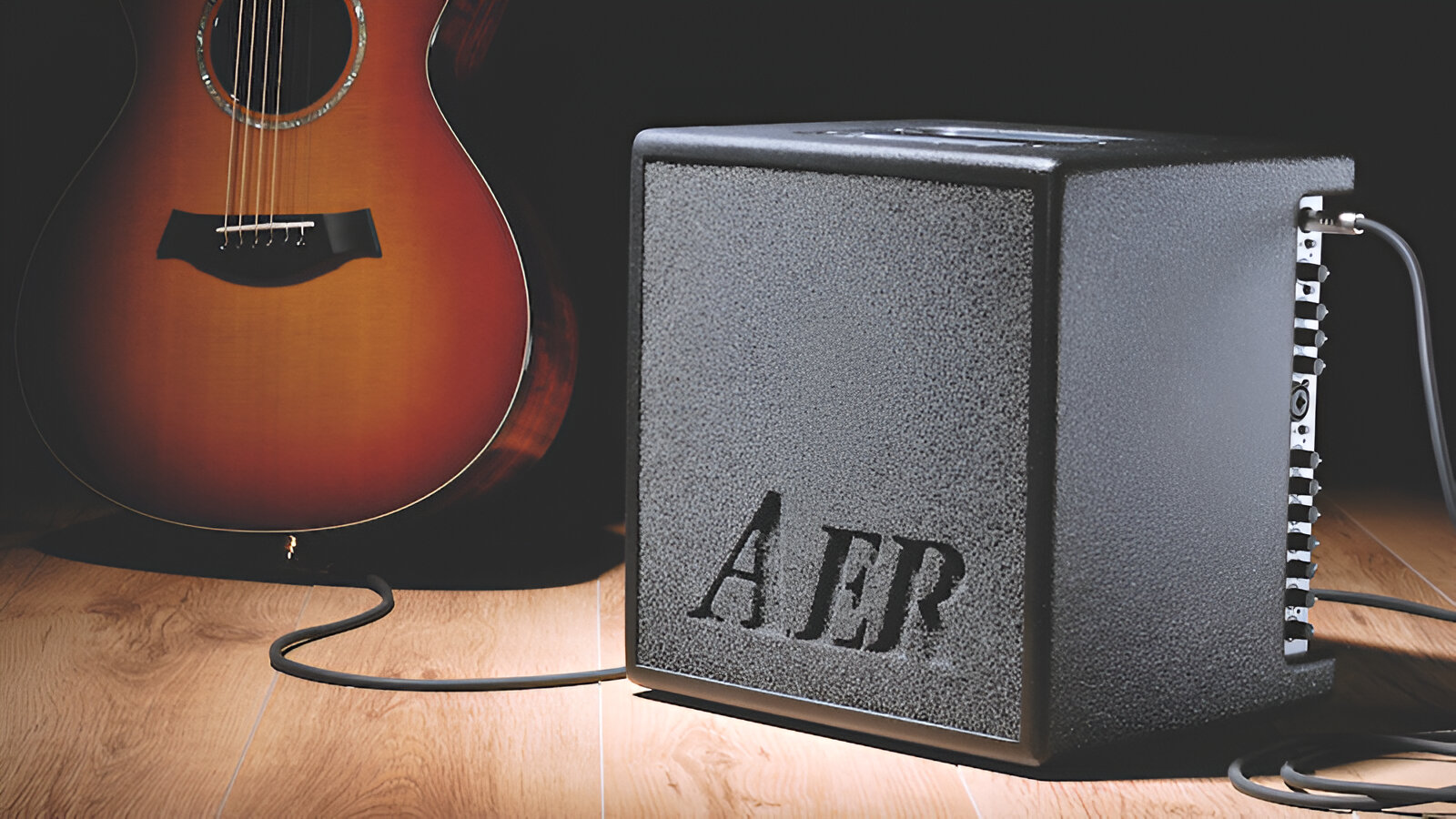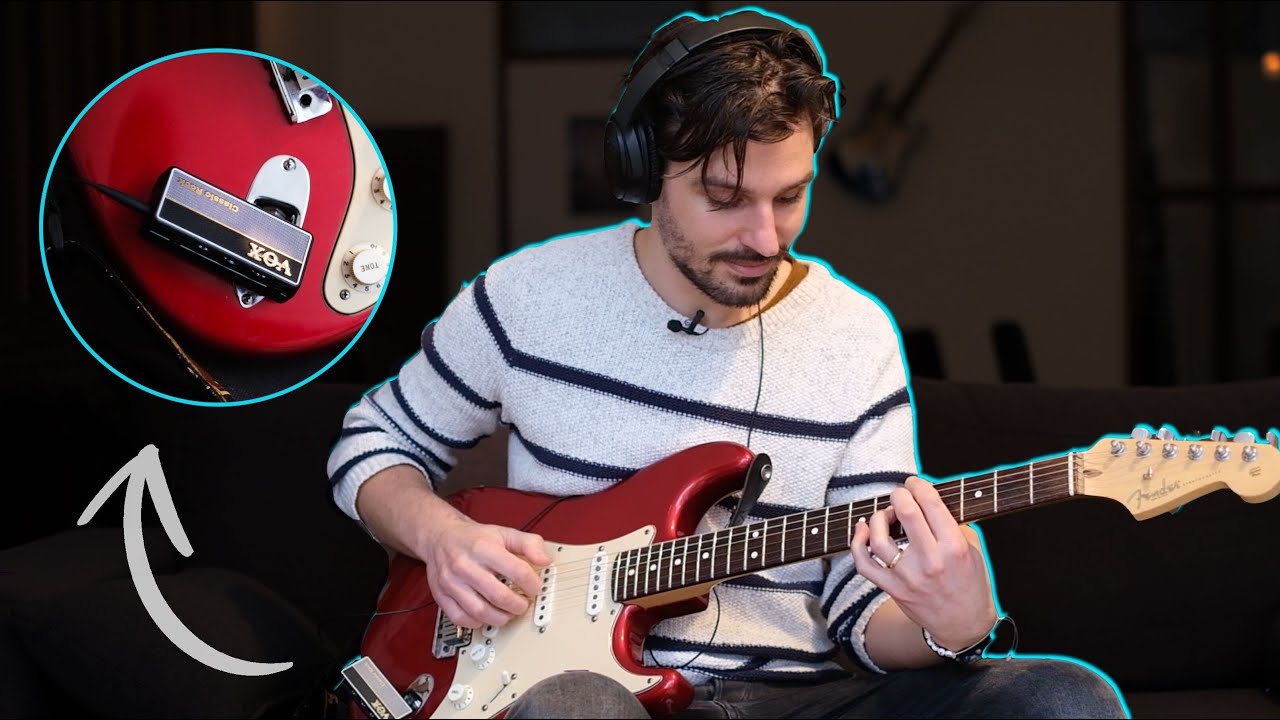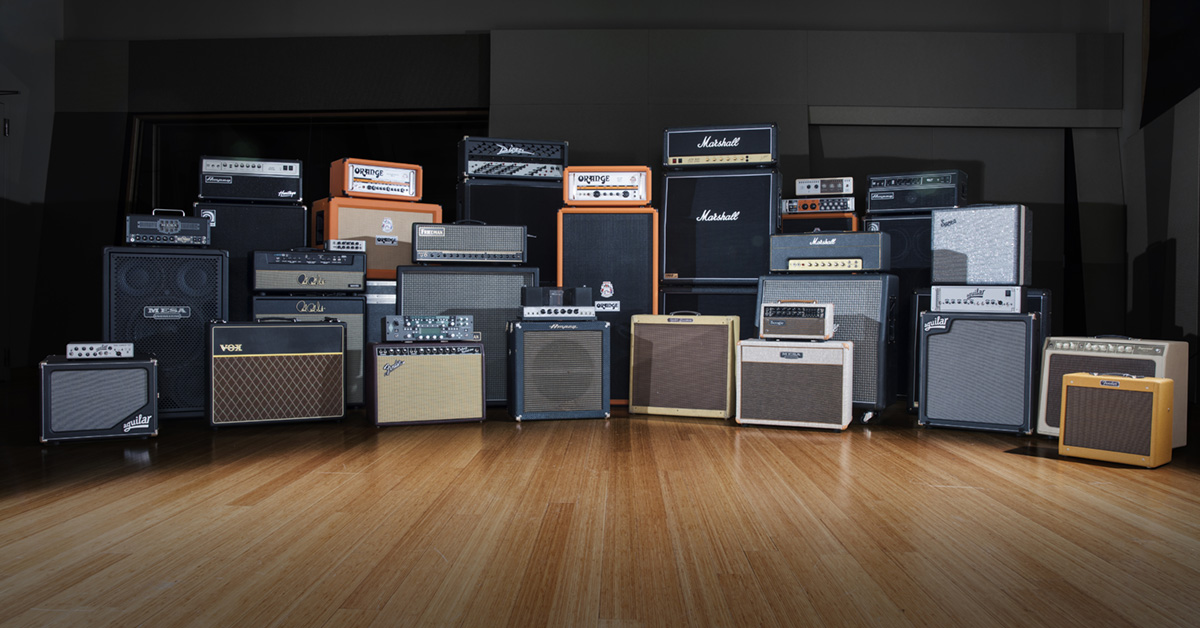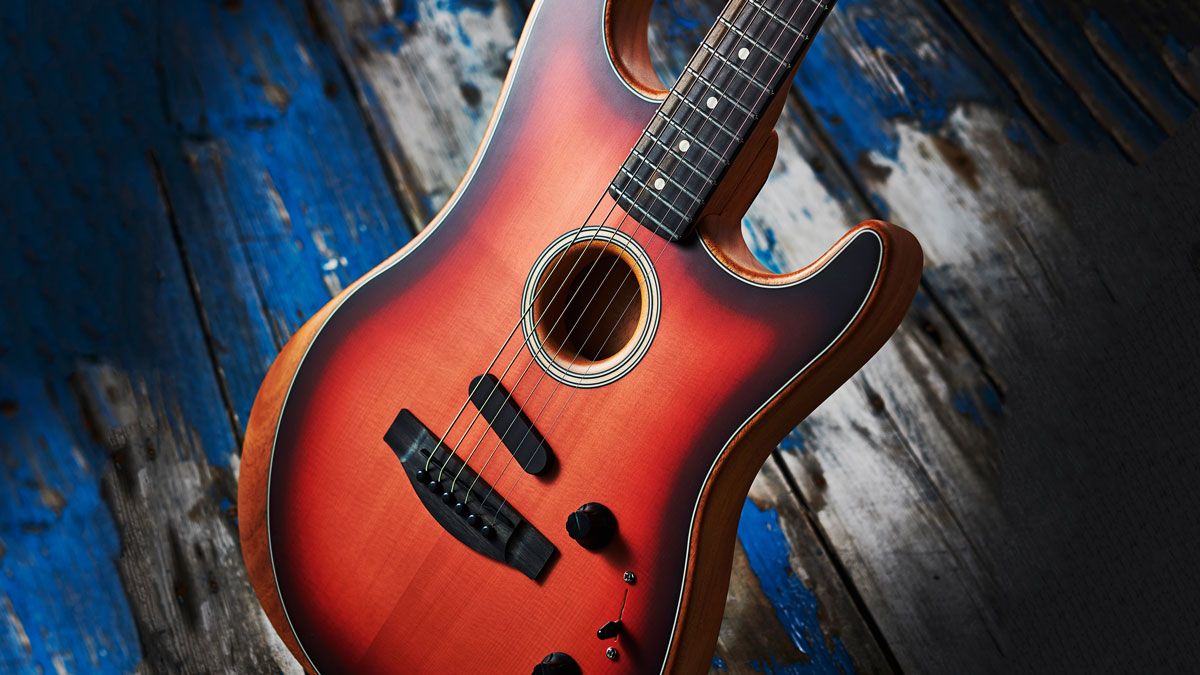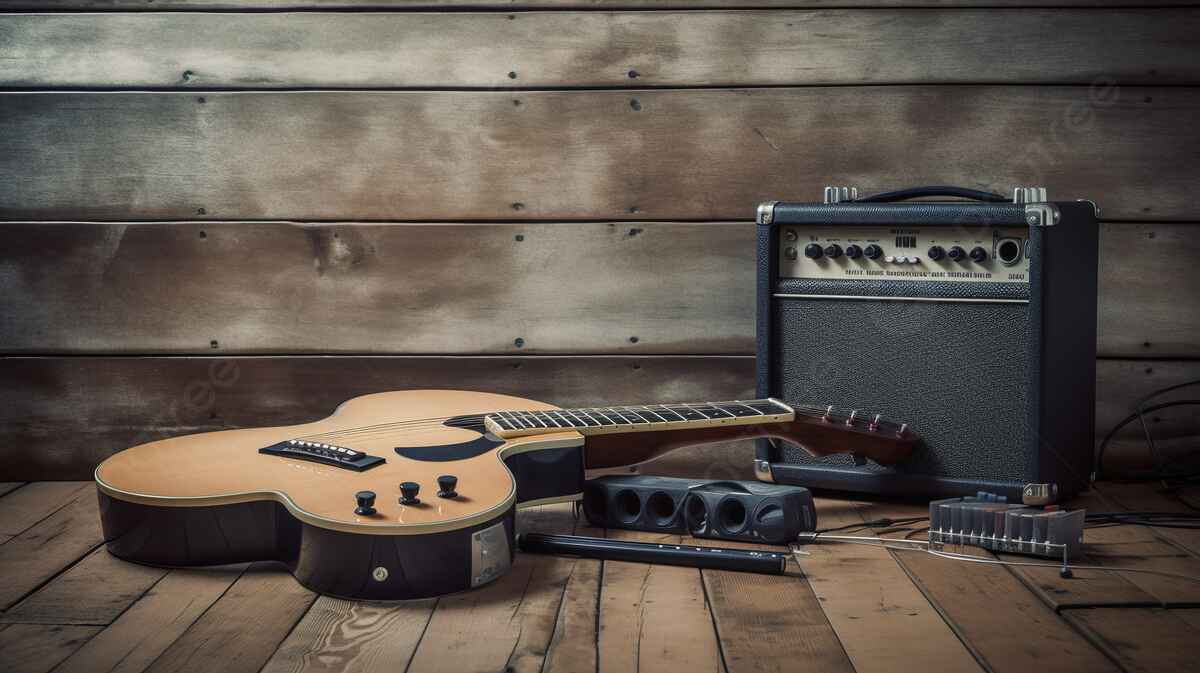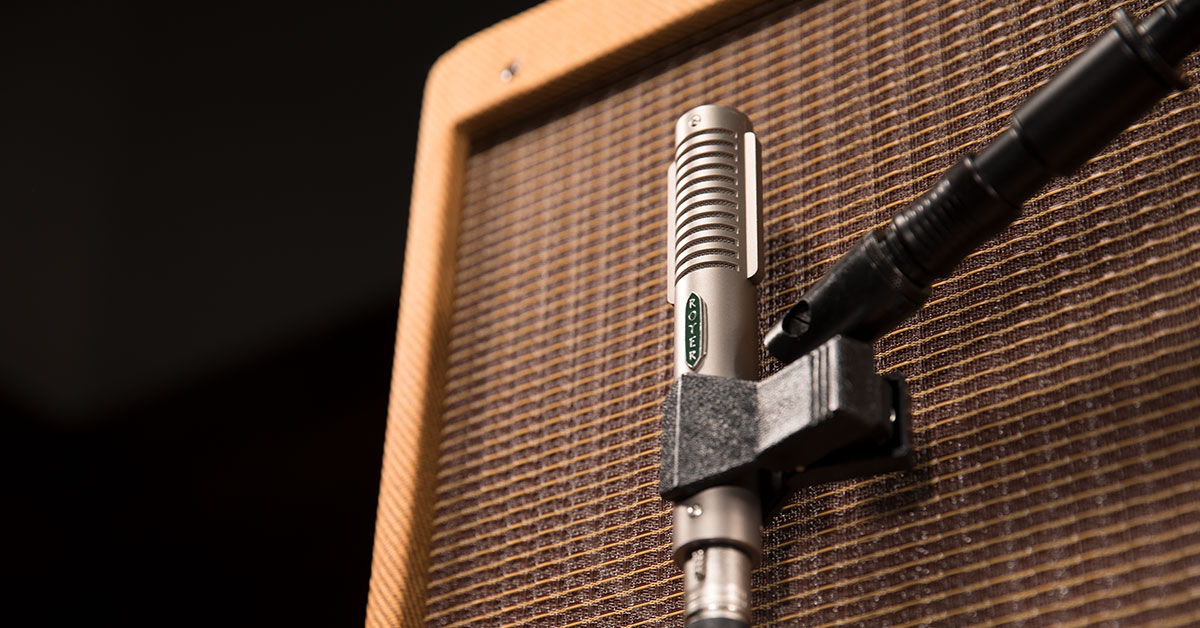Introduction
So, you've got your hands on an acoustic electric guitar, and now you're looking to take your sound to the next level. Whether you're a seasoned performer or just starting out, finding the right amplifier is essential for bringing out the best in your instrument. An acoustic electric guitar amplifier, often simply referred to as an acoustic amp, is designed to faithfully reproduce the natural, rich tones of acoustic guitars while offering additional features and effects to enhance the overall sound.
A good acoustic guitar amp can make a world of difference in how your instrument sounds, whether you're playing in the comfort of your own home, at a small venue, or on a big stage. These amps are specifically tailored to complement the unique characteristics of acoustic electric guitars, providing clear and pristine amplification without compromising the instrument's natural acoustic qualities.
In this guide, we'll explore the various types of amps available for acoustic electric guitars, delve into the key considerations to keep in mind when choosing an amp, highlight the top features to look for, and provide a curated list of the best amps for acoustic electric guitars in 2021. Whether you're seeking portability, tonal versatility, or advanced effects, there's an acoustic amp out there that's perfect for your needs.
Choosing the right amp is a crucial step in shaping your sonic identity and ensuring that your performances resonate with the audience. With the wealth of options available in today's market, it's important to understand the features and functionalities that matter most to you as a guitarist. Let's embark on this journey to uncover the perfect amplifier that will elevate your acoustic electric guitar playing to new heights.
Types of Amps for Acoustic Electric Guitars
When it comes to amplifying the sound of an acoustic electric guitar, there are several types of amplifiers to consider, each offering unique features and sonic characteristics. Understanding the distinctions between these amp types can help you make an informed decision based on your specific needs and playing style.
1. Acoustic Combo Amps: These all-in-one amplifiers are designed specifically for acoustic electric guitars, offering built-in speakers and a range of features such as EQ controls, built-in effects, and sometimes even microphone inputs. Acoustic combo amps are versatile and convenient for small to medium-sized venues and practice sessions.
2. Acoustic Amp Heads and Cabinets: This setup separates the amplifier into two components: the amp head, which contains the electronics and controls, and the speaker cabinet, which houses the speakers. This modular approach allows for greater customization and scalability, as you can mix and match different amp heads and cabinets to achieve your desired sound and volume levels.
3. Acoustic Preamp Pedals: These compact devices are designed to be used with a separate amplification system, such as a PA system or powered speaker. Acoustic preamp pedals provide essential tone shaping and signal processing capabilities, allowing you to fine-tune your sound before it reaches the amplification system.
4. Acoustic DI Boxes: While not traditional amplifiers, direct injection (DI) boxes are essential for connecting acoustic electric guitars to professional sound systems or recording equipment. DI boxes convert the high-impedance signal of the guitar into a low-impedance, balanced signal, ensuring optimal sound quality and noise-free transmission.
Each type of acoustic electric guitar amplifier offers its own set of advantages and considerations, so it’s important to evaluate your specific needs and performance requirements when selecting the right amp for your musical endeavors. Whether you prioritize portability, tonal customization, or seamless integration with existing sound systems, there’s an acoustic amp configuration that’s perfectly suited to your preferences.
Considerations When Choosing an Amp
Choosing the right acoustic electric guitar amplifier involves careful consideration of various factors to ensure that the amp aligns with your musical goals and performance needs. Here are some essential considerations to keep in mind when selecting an amp for your acoustic electric guitar:
- Tonal Characteristics: Consider the tonal qualities you aim to achieve. Whether you prefer a warm, natural sound or seek additional tonal shaping options, the amp’s tonal characteristics play a crucial role in defining your sonic identity.
- Portability: If you’re frequently on the move or perform in diverse settings, portability becomes a key consideration. Compact, lightweight amps are ideal for musicians who prioritize ease of transport without sacrificing sound quality.
- Power and Volume: Evaluate the power rating and volume capabilities of the amp based on your performance requirements. Whether you play in intimate acoustic settings or larger venues, the amp’s power and volume should meet the demands of your performances.
- Effects and Processing: Some acoustic amps offer built-in effects such as reverb, chorus, and delay, as well as advanced signal processing capabilities. Determine whether these features align with your musical style and whether they enhance your overall sound.
- Input and Output Options: Assess the amp’s input and output options, including XLR and 1/4″ jacks, to ensure compatibility with your instruments, microphones, and external audio devices.
- Feedback Resistance: Acoustic electric guitars are susceptible to feedback at higher volumes. Look for amps equipped with feedback suppression technology or design features that mitigate feedback issues without compromising the natural resonance of the guitar.
- Build Quality and Durability: A well-constructed, durable amp is essential for withstanding the rigors of live performances and frequent transportation. Quality components and robust construction contribute to the reliability and longevity of the amplifier.
- Compatibility with Accessories: If you use pedals, loopers, or other accessories in your setup, ensure that the amp is compatible with these additional components, providing seamless integration and expanded creative possibilities.
By carefully assessing these considerations and aligning them with your specific musical preferences and performance scenarios, you can make an informed decision when choosing an acoustic electric guitar amplifier that perfectly complements your playing style and sonic aspirations.
Top Features to Look for in an Amp
When exploring the myriad options available for acoustic electric guitar amplifiers, it’s essential to prioritize certain features that can significantly enhance your playing experience and overall sound quality. Here are some top features to look for when selecting an amp for your acoustic electric guitar:
- Transparent Sound Reproduction: A high-quality acoustic amp should faithfully reproduce the natural, resonant tones of your guitar without coloration or distortion, allowing the instrument’s inherent characteristics to shine through.
- Flexible EQ Controls: Look for an amp with comprehensive equalization controls, including bass, midrange, and treble adjustments, to fine-tune your sound and adapt to different performance environments.
- Built-in Effects and Processing: Some acoustic amps offer integrated effects such as reverb, chorus, and delay, as well as signal processing features like feedback suppression and anti-feedback notch filters, providing added sonic versatility and control.
- Multiple Channels: An amp with multiple channels allows you to connect various instruments and microphones simultaneously, enabling seamless transitions between different sound sources during performances.
- DI Output: A dedicated DI (direct injection) output facilitates direct connection to a mixing console, PA system, or recording interface, ensuring optimal signal transfer and sound reinforcement in live and studio settings.
- Portability and Durability: For musicians on the go, a lightweight, portable amp with robust construction is essential. Consider the amp’s weight, size, and overall durability to meet the demands of frequent travel and live performances.
- Battery-Powered Operation: Battery-powered amps offer the flexibility to perform in locations where AC power may be limited or unavailable, making them ideal for outdoor gigs, busking, and impromptu jam sessions.
- Integrated Stand Mounting: Some amps feature integrated mounting options for microphone stands or speaker stands, providing convenient positioning and optimal sound projection during performances.
- Expandability and Connectivity: Assess the amp’s compatibility with additional accessories such as pedals, footswitches, and external speakers, as well as its connectivity options for audio interfaces and recording devices.
- Warranty and Customer Support: Consider the manufacturer’s warranty coverage and the availability of responsive customer support to address any technical issues or inquiries related to the amplifier.
By prioritizing these top features and evaluating their alignment with your specific performance requirements and musical aspirations, you can identify an acoustic electric guitar amplifier that not only elevates your sound but also enhances your overall playing experience, whether at home, in the studio, or on stage.
Best Amps for Acoustic Electric Guitars in 2021
As of 2021, several acoustic electric guitar amplifiers have garnered acclaim for their exceptional sound quality, versatile features, and reliability. Whether you’re a solo performer, a singer-songwriter, or a seasoned professional, these top amps are worth considering for their ability to elevate your acoustic guitar performances:
- Fender Acoustic Junior: This compact and portable amp from Fender is renowned for its rich, natural sound reproduction and versatile feature set, including integrated effects, dual channels, and convenient connectivity options. The Fender Acoustic Junior excels in both intimate settings and small venues, making it a go-to choice for acoustic guitarists seeking premium tone and flexibility.
- BOSS Acoustic Singer Live: BOSS has crafted a powerhouse acoustic amp in the form of the Acoustic Singer Live. With its dual-channel design, impressive built-in effects, and advanced feedback-fighting technology, this amp offers exceptional clarity and dynamic control for live performances. Its integrated looper and harmonizer further enhance its appeal for performers looking to expand their sonic capabilities.
- Fishman Loudbox Artist: The Fishman Loudbox Artist has earned a stellar reputation for its pristine sound quality and studio-grade effects. Equipped with dual channels, feedback suppression, and Bluetooth connectivity, this amp delivers remarkable tonal transparency and versatility, making it an ideal choice for discerning acoustic guitarists and vocalists.
- Marshall AS50D: Marshall’s AS50D acoustic amp is celebrated for its warm and articulate sound, complemented by lush digital effects and independent channel EQs. The amp’s robust construction, dual 8″ speakers, and anti-feedback controls make it a reliable and versatile option for performers seeking a classic, British-inspired acoustic tone.
- Taylor Tone Tailors: Taylor’s innovative Tone Tailors series offers a range of compact, feature-rich acoustic amps tailored to the specific sonic nuances of Taylor guitars. These amps boast impressive clarity, intuitive controls, and Taylor’s signature Expression System 2 pickup compatibility, catering to the discerning needs of Taylor guitar enthusiasts and performers.
These top acoustic electric guitar amplifiers exemplify the commitment of leading manufacturers to deliver premium sound quality, innovative features, and practical designs tailored to the unique requirements of acoustic guitarists. By exploring these standout amps, you can discover the perfect companion to enhance your acoustic performances and unlock new creative possibilities in your musical journey.







